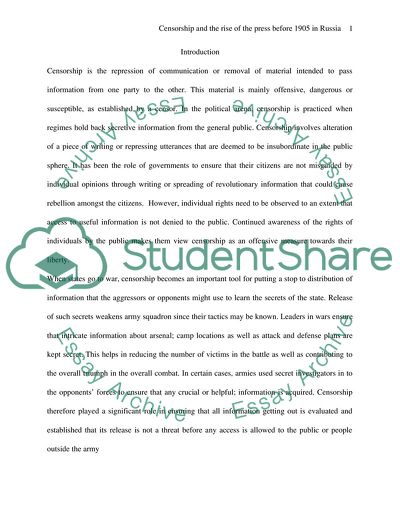Cite this document
(Censorship and the Rise of the Press Before 1905 in Russia Essay, n.d.)
Censorship and the Rise of the Press Before 1905 in Russia Essay. https://studentshare.org/history/1718133-censorship-and-the-rise-of-the-press-before-1905-in-russia-from-around-mid-1800s-to-1905
Censorship and the Rise of the Press Before 1905 in Russia Essay. https://studentshare.org/history/1718133-censorship-and-the-rise-of-the-press-before-1905-in-russia-from-around-mid-1800s-to-1905
(Censorship and the Rise of the Press Before 1905 in Russia Essay)
Censorship and the Rise of the Press Before 1905 in Russia Essay. https://studentshare.org/history/1718133-censorship-and-the-rise-of-the-press-before-1905-in-russia-from-around-mid-1800s-to-1905.
Censorship and the Rise of the Press Before 1905 in Russia Essay. https://studentshare.org/history/1718133-censorship-and-the-rise-of-the-press-before-1905-in-russia-from-around-mid-1800s-to-1905.
“Censorship and the Rise of the Press Before 1905 in Russia Essay”. https://studentshare.org/history/1718133-censorship-and-the-rise-of-the-press-before-1905-in-russia-from-around-mid-1800s-to-1905.


